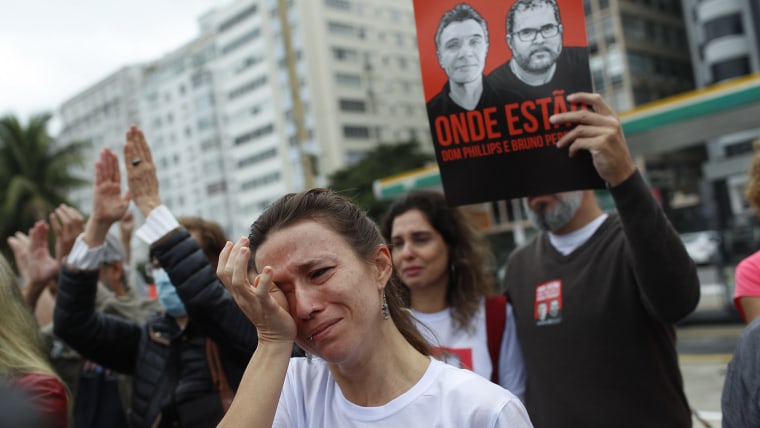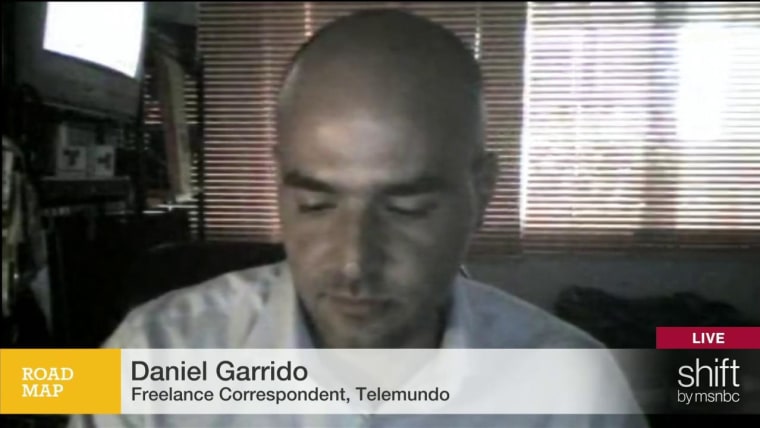Journalism is not usually believed of as an unsafe occupation. Sure, there are glamorized representations of war reporters and the brave press reporters, professional photographers and videographers who venture deep into locations of political chaos and civil discontent, ultra-corrupt nations and natural catastrophe websites. However the general public by and big isn’t fretting about other press reporters.
And yet the disappearance and declared killing of brave British reporter Dom Phillips this month in Brazil’s Javari Valley shines a grim spotlight on the lesser-known however similarly chilling risks of environmental reporting.
Reporting on the environment is one of the most dangerous beats in journalism.
Reporting on the environment is one of the most dangerous beatsin journalism
In Phillips’ case, cops state disaster struck the experienced reporter, who has actually worked for such wire service as The Guardian and The Washington Post, in a rain forest area beset by prohibited fishing, poaching and other environmental criminal activities. Today, reports recommend Phillips might have been eliminated over a prohibited fishing dispute in a Native reserve on the border of Columbia and Peru. Cops have actually looked for up until now to soft-pedal any links to the mob, although Native activists in the location stay hesitant.
As part of my research study on how reporters can better cover worldwide environmental problems, I have actually been speaking with environmental press reporters whose work made them targets of physical, legal, financial and mental attacks– amongst them reporters sent to prison in Liberia, took legal action against in India, bugged into self-exile in Nigeria and physically attacked in Egypt.
The attacks led some to alter occupation. For others, the attacks reinforced their sense of objective and strengthened their dedication to the guard dog functionof journalism In either case, numerous suffer long-lasting mental implications, such as anxiety and drug abuse.
Internationally, most reported events– like Phillips’ killing– happen in lesser-developed nations in Southeast Asia, Africa and Latin America. This suggests reporters examining environmental issues are at specific danger in remote locations out of view of significant news media.
” In those locations, those nations, a lot of the cash and wealth is linked to natural deposits, so covering extraction, exploitation, destruction, even the trade in natural deposits, is covering large amounts of cash and crucial and large service and monetary interests,” executive director Meaghan Parker of the Society of Environmental Reporters informed me just recently.
” Numerous have bad or uncertain governance on how to handle natural deposits and how to implement or do not implement laws covering natural deposits,” Parker stated.
And Phillips’ slaying is simply the most current in a series of anti-journalist actions in Brazil particularly.
Phillips’ slaying is simply the most current in a series of anti-journalist actions in Brazil particularly.
Just 2 months previously, the Brazilian subsidiary of Britain’s Brazil Iron mining business called cops to implicate reporters Daniel Camargos and Fernando Martinho of trespassing when they went to the business looking for remark about the results of mining activities on regional neighborhoods. According to the Committee to Job Reporters, a press rights advocacy group, the set were kept at a police headquarters for about an hour, then launched without charges.
Somewhere Else in Latin America, Dutch reporter Bram Ebus was apprehended and questioned by the National Guard and military intelligence in Venezuela while examining prohibited mining in Native neighborhoods there. In Guatemala, cops robbed a news outlet and the houses of reporters and bugged press reporters covering demonstrations versus mining operations at a nickel processing plant, according to report.
In Africa, Der Spiegel reporter Bartholomaeus Grill and a Swedish freelance professional photographer were apprehended by town locals and cops and threatened by a rhino poaching kingpin in Mozambique.
Reporters reporting on environmental debates in established nations are likewise targets, as in Finland, where reporters mentioned environmental problems– in addition to migration, bigotry, faith and gender equality– as “trigger topics that create hazards and harassment.”
Reporters in the U.S. and Canada aren’t immune either.
A Number Of U.S. press reporters were apprehended while covering demonstrations versus the Dakota Gain access to oil pipeline, as were Canadian reporters covering presentations versus hydraulic fracturing near First Nations land in Brand-new Brunswick, and a questionable hydroelectric task in Labrador.
In my view, there are 2 significant reasons that environmental reporters are targeted. Both show greed– greed for cash and greed for power– at the cost of the environment and the general public excellent.
As the most recent yearly International Impunity Index from the Committee to Secure Reporters observed, “Nobody has actually been held to account in 81% of reporter murders throughout the last ten years.”
Initially, environmental debates often include well-connected service and political interests, corruption and criminal conduct such as prohibited mining, logging and poaching. Those stories likewise fall under the portfolios of service, criminal activity and corruption press reporters.
Lots Of of these problems include disputes over environmental oppression, social and financial injustices and Native rights to natural deposits and land– in other words, the effective making use of the helpless.
2nd, those who assault environmental reporters, particularly physically through kidnapping, attack and murder, run mostly with absence of responsibility and little factor to fear penalty.
As the most recent yearly International Impunity Index from the Committee to Secure Reporters observed, “Nobody has actually been held to account in 81% of reporter murders throughout the last ten years.”
History and present occasions both reveal that those accountable are not likely to be apprehended, not to mention founded guilty and sent to prison for their criminal activities versus reporters. In reality, police and federal government authorities are typically in cahoots with civilians, criminal activity gangs and companies accountable for some of those atrocities.
As Parker put it, “If you’re threatening cash and power in a location with bad governance, you’re going to be at excellent danger.”


